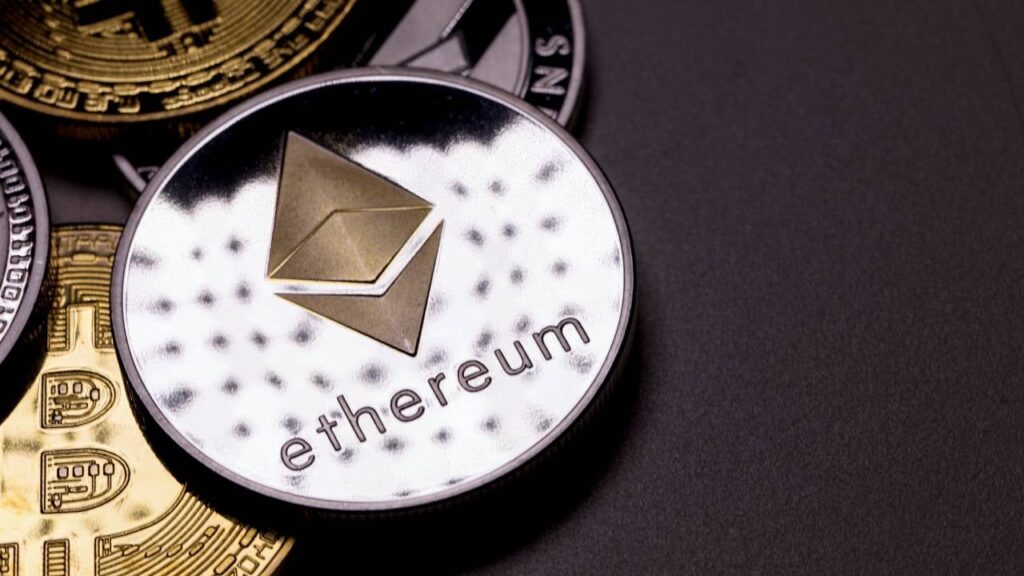Investors looking to trade Ethereum now have the option of using exchange-traded funds (ETFs) to easily buy and sell the popular cryptocurrency. These Ethereum ETFs offer a more user-friendly way to trade Ethereum through traditional brokers, as opposed to navigating through the complexities of cryptocurrency exchanges.
The Securities and Exchange Commission (SEC) greenlit spot Ethereum ETFs in May 2024, following the approval of Bitcoin ETFs earlier in January. Trading of Ethereum ETFs commenced in July, allowing traders to invest in Ethereum without the need to hold the actual cryptocurrency or deal with potentially risky cryptocurrency exchanges.
Highlighted below are some of the top Ethereum ETFs, along with their performance and annual fees.
Top Ethereum ETFs
| Fund (ticker) | YTD performance | Expense ratio |
|---|---|---|
| iShares Ethereum Trust (ETHA) | -32.3% | 0.12% |
| Fidelity Ethereum ETF (FETH) | -32.3% | 0%* |
| Bitwise Ethereum ETF (ETHW) | -32.4% | 0.20% |
| VanEck Ethereum ETF (ETHV) | -32.5% | 0.20% |
| Franklin Ethereum ETF (EZET) | -32.4% | 0%** |
| Invesco Galaxy Ethereum ETF (QETH) | -32.5% | 0.25% |
Source: ETF.com. Data as of Sept. 11, 2024.
*On Jan. 1, 2026, this fund will start charging 0.25 percent annually.
**On Feb. 1, 2025, this fund will start charging 0.19 percent annually.
These spot Ethereum ETFs mirror the price movements of the cryptocurrency on a proportional basis, ensuring similar performance across different fund prices. As a result, these ETFs have displayed comparable performance since their approval.
When choosing the best fund, opt for the one with the lowest expense ratio, as their performances and underlying assets are identical. Similar to index funds tracking major indexes like the S&P 500, lower costs are preferred when the funds track the same index.
Several new Ethereum funds are currently offering no expense ratio for a limited time, aiming to attract assets quickly. However, these fees will revert to normal levels after the initial promotional period.
Compared to trading Ethereum directly on most brokerages and crypto exchanges, the fees associated with ETFs are competitive, making it more convenient and cost-effective to invest in cryptocurrency through a fund.
Considering Ethereum ETFs
The availability of Ethereum ETFs simplifies and reduces the costs for traders to invest in the digital currency through their regular brokers, eliminating the need for specialized crypto exchange accounts. While Ethereum ETFs offer a convenient way to invest in the cryptocurrency, potential investors should bear in mind the advice of SEC chief Gary Gensler, who cautioned about the risks associated with crypto assets.
Similar to Bitcoin, Ethereum’s volatility makes it an attractive option for experienced traders but can pose challenges for those new to cryptocurrency trading. Ethereum, like most cryptocurrencies, lacks backing from physical assets or cash flow, relying solely on trader sentiment for its valuation.
Legendary investor Warren Buffett has been apprehensive about cryptocurrencies, highlighting the speculative nature of assets like Bitcoin and Ethereum. Despite the potential for significant gains, the unpredictability of cryptocurrency markets can lead to substantial losses for inexperienced traders.
Where to Access Ethereum ETFs
Ethereum ETFs are typically available through brokers that facilitate stock and fund trading on major U.S. exchanges. Opt for brokers that offer commission-free trading on ETFs to minimize costs when trading Ethereum.
Final Thoughts
The introduction of spot Ethereum ETFs provides traders with an accessible and cost-effective means of investing in the digital currency through traditional brokerage accounts. These ETFs may contribute to increased liquidity and acceptance of Ethereum as a viable investment option.
Editorial Disclaimer: Investors should conduct thorough research into investment strategies before making decisions. Past performance of investment products does not guarantee future price appreciation.

